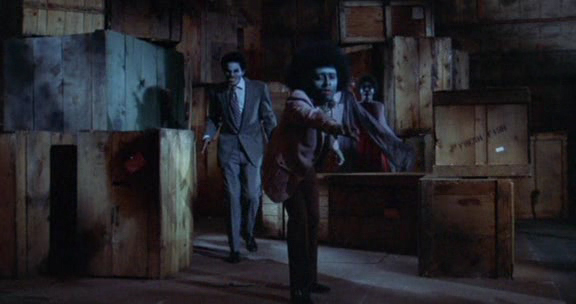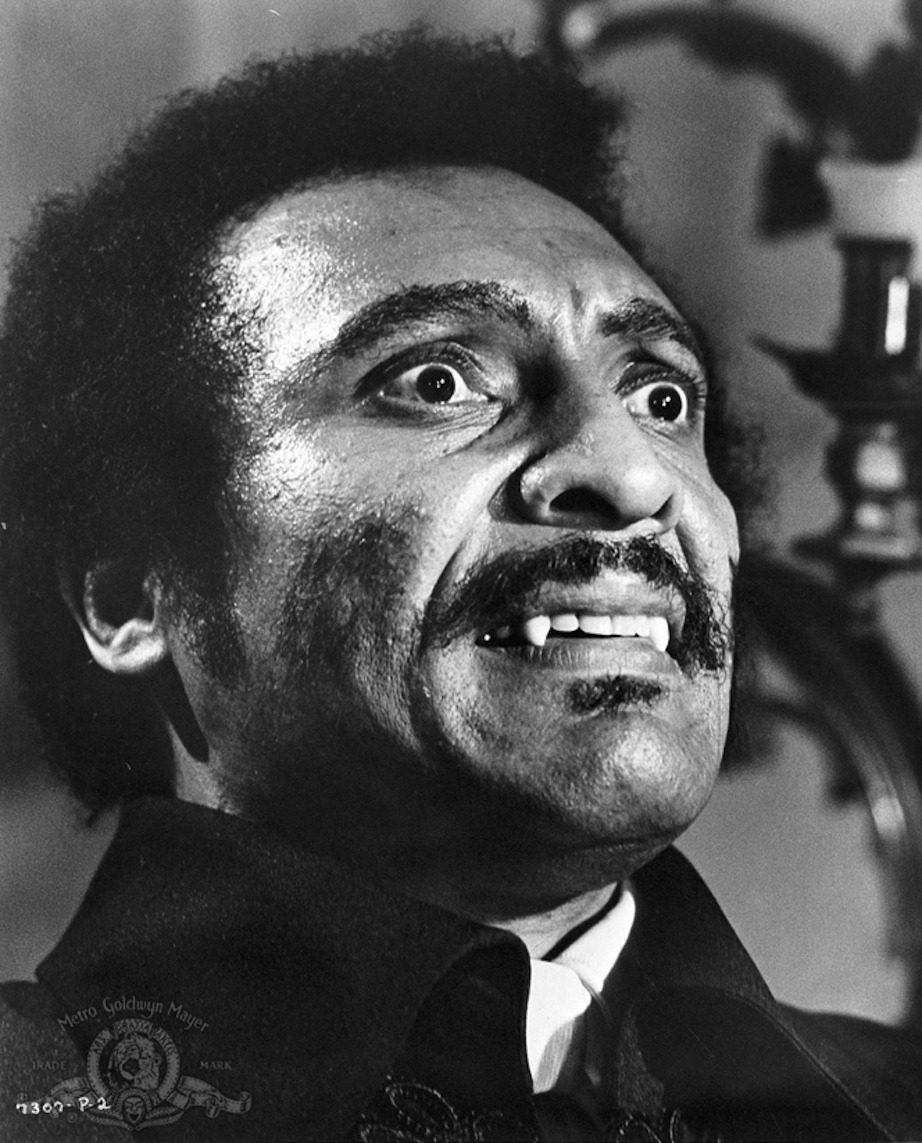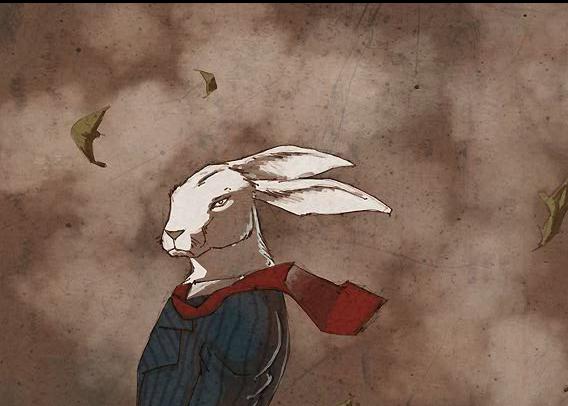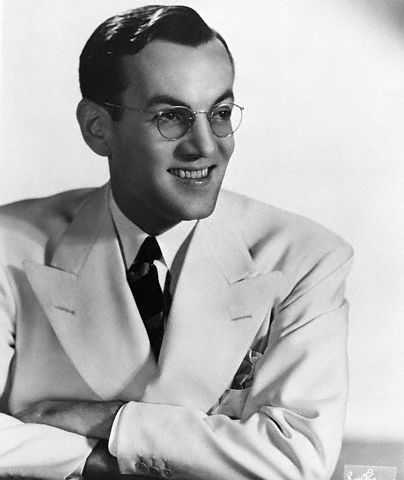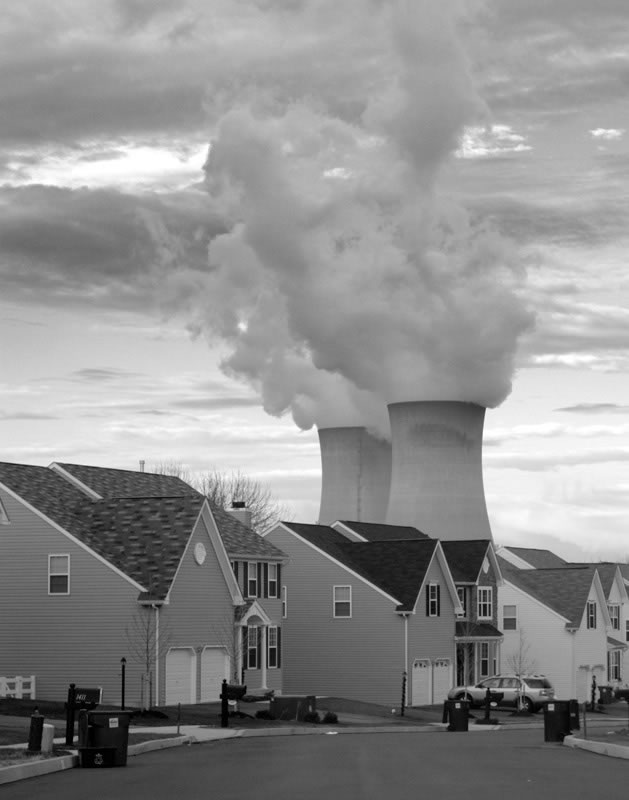Now, one must remember that if they're going to watch a blaxploitation film, they need to be in a particular mindset to truly enjoy it. These films may contain:
- Funk and soul music
- Cheesy as hell effects and choreography
- Use of the N-word
- Erotic undertones
- Erotic overtones
- Jive talk
- Ignorant white men being taken down and/or white people becoming doormats
So if you honkeys can't handle this groove, then y'all better split now. Let's get to the down and dirty.
"Hmm, I wonder what the blood of a negro tastes like..."
The movie starts with an African prince named Mamuwalde (played by the Z-list version of Billy D. Williams, Williams H. Marshall) and his wife Luva (played by the saucy Vonetta McGee) speaking to the vampire king himself, Count Dracula. Mamuwalde is speaking to the Count about the slave trade and how he wants him to maybe cut back on suppressing the lives of his people. You tend to notice that Mamuwalde's one sophisticated smooth-talking negro. Every word he says sounds so resonant and relaxed, you can't help but be hypnotized by what he has to say. Being that the Count is not only a blood sucking pale-faced monster and a vampire, he's not going to follow through with Mamuwalde's proposal and decides to bite him on the neck. Because that's really the only thing vampires can do, make idle chit-chat and suck your blood. He curses Mamuwalde that he will rest in one of his tombs and carry on with the Count's legacy, as the eponymous Blacula when released. As for his wife? Well she gets to cry around his locked coffin for the rest of her life until she withers away. Delightful.
Afterwards we get some intriguing animated opening credits and we cut to 1972, where two gay interior decorators decide to take Dracula's estate and coincidentally take Blacula's coffin with them to a L.A warehouse. They talk about how gay they are because that's all gay people did in the 70s and then they open the coffin one of them wants to use as a bed for their horror themed house. I guess black is the new pink. As expected Mamuwalde (who we will now deem Blacula) attacks the two and retreats back in his coffin because what else is he gonna do after biting two interior decorators? We focus on the black interior decorator whose friends have come to see the body. His friends, Tina Williams (another role that Vonetta had in this film), her sister Michelle (oddly enough played a civil rights activist named Denise Nicholas) and Michelle's boyfriend Dr. Gordon Thomas (played by a recurring blaxploitation actor Thalmus Rasulala) are unaware that they're being spied on by Blacula. Dr. Gordon (no, not that one) stays in the room and continues to pester the curator of the tomb about the details concerning the corpse of his friend. So much so, the curator calls Gordon a "rude nigger" in a way that mirrored Geoffrey sans the dry wit. Blacula believes that Tina is a reincarnation of his wife Luva, and since he hasn't gotten his groove on since the 18th century, he decided to get in on that by following her.
As you'd imagine, following a woman in the dark isn't really the best way to get her to think you're a nice guy so naturally she dashes like mad to her apartment dropping her purse. Of course, Blacula manages to get it and gives it to her, after biting a cab driver that ran him over and off the trail. To assure that he can win her over, he uses his normal name when introducing himself to her. With his charismatic demeanor, Tina invites Blacula over to meet up with her friends at a club. Again, you begin to notice the sheer wonder of Williams' acting as Blacula. As he talks to Tina and her friends in the club, you can just tell he's calculating carefully what he wants to say to draw her in. Luckily for Blacula, he managed to do just that. Tina just seems to be mesmerized by what he has to say, and it certainly helps that he looks like a boss nigger. As they're all having a good time and drinking champagne, a girl starts to take pictures of them. This doesn't please ol' Vlad Blacul too much because he doesn't show up on the pictures. So he tells the lady that it would be appreciated if she did not develop those pictures so that panic does not ensue amongst th-I'm just kidding, he sucks her blood and crumples one of the developed pictures so that no one will know about his secret.
And they say that he's the monster...
Now, this is actually quite clever of the movie of having Blacula not necessarily be a monster for the sake of "Ooh, I'm a vampire!" but rather eliminating people that will obstruct his path of rekindling the love that he has for his wife. It shows that he's not letting the inner nature of maliciousness that comes with being a vampire get the better of him. If anything, he's just using his newfound abilities as a tool to get to his primary human goal of finding passion once again. It is a bit peculiar that Tina just accepts that he's a vampire once he reveals that to her, but they did have sex, so I suppose Mamuwalde's ancient experience in the love-making makes up for it.
While all of this ooey-gooey romance is happening, Dr. Gordon is investigating the death of the interior decorators using all the information he can get from the LAPD. He notices that there have been more cases of the "teeth marks inside of the neck" and "empty blood vessels" occurring around the area and notices that there's a connection. He keeps trying to investigate, trying to come to a more reasonable conclusion than "Hey, I think we're being attacked by vampires". But after realizing that his friend's corpse has disappeared, it doesn't seem that crazy after. To be sure though, he convinces his girlfriend to assist him in digging up the other interior decorator's grave. Sure enough, once they open the coffin, Cracker McGee is a vampire. Dr. Gordon shoves a stake into his heart and then realizes that he's right on the level of batshit insane these cases have been. To prove to his boss that vampires are a threat, he thaws out the corpse of the cab driver and then blasts the sun on her before either of them get attacked. His boss realizes that it's best to guard the city at night, but Gordon needs to find who's the source of all this mayhem. Sure enough, he finds out that it's Mamuwalde. I'm not sure what gave him that idea...was it the negative that he found in the house of the lady that was attacked that showed him not being there or Mamuwalde wearing a goddamn cape?
I think the make-up artist thought this was Night Of The Living Niggas
Dr. Gordon confronts Tina about this and gives Michelle a cross so that she can protect herself and Tina from when Blacula returns. Gordon, his boss and some cops try to go to the warehouse to confront Blacula, but surprise! Turns out that he not only moved his coffin somewhere else but also trapped them with a whole bunch of vampires. On the one hand, this is quite cruel of Blacula to just have them killed instead of finding a more diplomatic manner of making sure that he can keep his love and his life. On the other hand, Dr. Gordon just seems to kill vampires willy-nilly so it's a respectable precaution. Blacula manages to fly away and take Tina into his new lair, where eventually Dr. Gordon and the Cracker Cop Clan follow suit. Blacula disposes of each of the cops one by one as he tries to get to his coffin. Unfortunately for him, one of the cops shoots Tina instead of him, which prompts him to turn her into a vampire. This makes sense in the idea that when you become a vampire, you lose touch with your humanity, which in turn means that he sees it as difficult to maintain his relationship with her if she no longer has a grasp of the love that they have. Dr. Gordon gets to his coffin and prepares to jab a nice wooden stick into some Blacula heart. Only that's not Blacula...that's Vampire Tina.
I'll kill a bunch of cops, but I sure as hell ain't fucking a corpse.
Heartbroken by the loss of his love, Blacula decides that the only thing he can do is drag himself up to the sunlight to kill himself, possibly reuniting himself with her in the afterlife. It ends with his rotting maggot-infested corpse, which is fitting for the horror aspect, but not so much to the actual substance of the film. I will say that it looked pretty damn real.
Many critics seem to hate on this film because it's not scary and basically slaps the black culture into a well-known tale, but I don't think one should honestly expect chills from a film called Blacula. It may have its insertions of funk and soul, but its much less about the blaxploitation bit than it is about Mamuwalde getting back the old flame that he lost. I will admit that the relationship wasn't fleshed out enough, but I can't expect such grandure from a film with what appears to be a shoestring budget. Plus it made a considerable attempt to create an interesting human-vampire dynamic, showing that as long as a human can control themselves from the urges that comes with being a vampire, they can be very nice. At the very least, one should enjoy the 70s tint that gives way to awkward fighting and bizarre humor along with the performance of Williams Marshall. Quite honestly, it's a damn shame that he hasn't been on-screen more, aside from being the King of Cartoons. The world can never have enough of the pontificating baritone badass, and he fit that title perfectly. So I say check it out, it's certainly one of the easier blaxploitation films to find.



